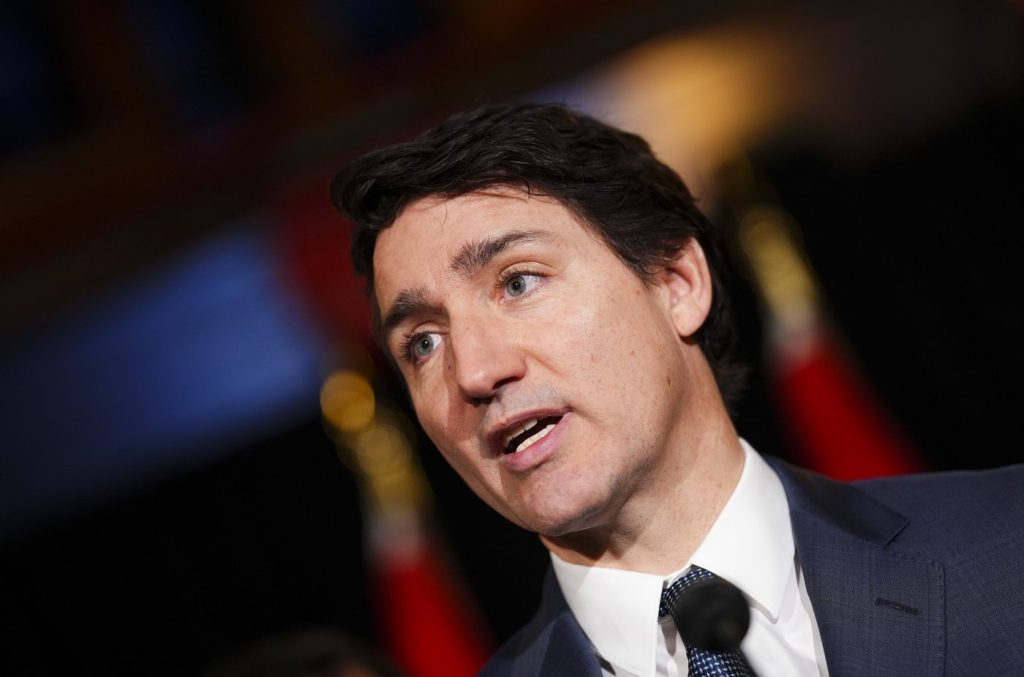In response to U.S. President Donald Trump's recent decision to impose tariffs on Canadian goods, Canada will implement immediate retaliatory tariffs of 25 percent on American products valued at $30 billion starting on Tuesday. Prime Minister Justin Trudeau announced that an additional $125 billion in duties on American items will follow in 21 days, allowing Canadian consumers and supply chains time to find alternatives.
Trudeau's announcement came shortly after Trump set forth 25 percent tariffs on all goods from Canada, along with a 10 percent tariff on oil, natural gas, and electricity. These tariffs are also scheduled to take effect on Tuesday. Despite Trump's order including a mechanism to escalate tariffs if Canada retaliates, Trudeau chose to proceed with the retaliatory measures.
Speaking about the U.S.-Canada relationship, Trudeau emphasized the importance of cooperation, stating, “If President Trump wants to usher in a new ‘golden age’ for the United States, the better path is to partner with Canada, not to punish us.” He expressed Canada's readiness to collaborate on boosting the North American economy.
When asked about the possibility of cutting energy supplies to the U.S. in light of the tariffs, Trudeau refrained from providing a direct answer. He indicated that any measures affecting specific regions of Canada would be handled “carefully” and in full collaboration with regional leaders. Trudeau directly addressed Americans, reminding them of the potential consequences tariffs would have on both countries. He warned that the tariffs would risk American jobs, especially in auto manufacturing and other sectors, ultimately raising costs for consumers, including food and fuel prices.
The retaliatory tariffs will apply to a wide array of American products, encompassing items such as beer, wine, bourbon, orange juice, vegetables, perfumes, clothing, shoes, and significant consumer goods such as household appliances, furniture, and sports equipment. Additionally, materials like lumber and plastics will also be included. The Prime Minister indicated that Canada is exploring several non-tariff measures, which may involve sectors such as critical minerals, energy, and procurement. A detailed list of affected items is expected to be released by Ottawa soon.
Trudeau acknowledged the anxiety many Canadians might be feeling due to the current situation but assured them, “we are all in this together.” He reaffirmed the commitment to stand strong for Canada, emphasizing the importance of maintaining the strong neighborly relations Canada has with the U.S.
The dispute could spark an economic standoff between the U.S. and its two largest trading partners, Canada and Mexico, potentially hindering overall economic growth. The Trump administration has stated that the tariffs were intended to compel Canada and Mexico, as well as China, to reduce the proliferation and manufacturing of fentanyl, while also urging both countries to take action on illegal immigration into the U.S.
A senior official from the U.S. government did not specify the criteria necessary for lifting the newly imposed tariffs but indicated that fewer American fatalities due to fentanyl addiction would be the primary measure of success.
In a prior response to Trump's focus on border security, Trudeau announced that Canada would allocate $1.3 billion towards enhancing border security, which includes deploying helicopters, new canine teams, and imaging technology.
As of now, Trudeau has yet to speak with Trump since he took office last week, but he mentioned that his administration has had “very effective” discussions with Trump's team, expressing optimism about future conversations with the U.S. President.
Political leaders in Canada have also weighed in on the situation. NDP Leader Jagmeet Singh urged Canadians to “stand strong and stand together,” while Conservative Leader Pierre Poilievre called for prioritizing Canada in the face of the crisis and suggested that Parliament should reconvene to address the issue. However, Trudeau argued that Parliament does not need to be recalled, as the government possesses the necessary tools to support Canadians independently of Parliament’s immediate involvement.










